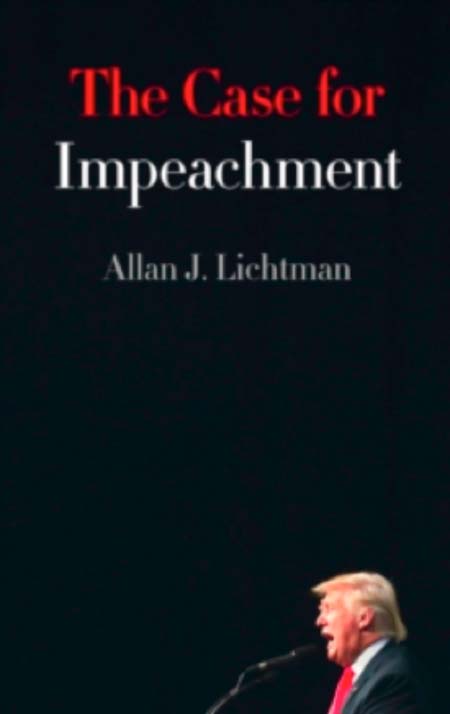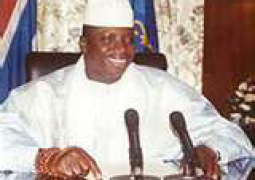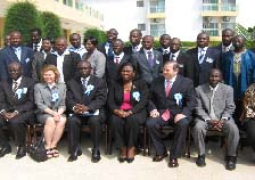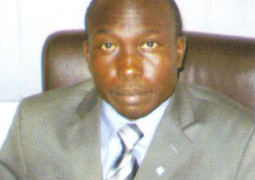
Edward
Luce
Shortly
after last year’s US presidential election, Allan Lichtman received a thank-you
note from Donald Trump. The historian was one of the few people to have
predicted the outcome. “Professor — Congrats — good call” was all it said.
Trump may have thought twice about sending the note had he known of Lichtman’s
other forecast — that he would be impeached in office. In The Case for
Impeachment, Lichtman sets out why Trump deserves that fate.
The
president’s list of potentially convictable offences ranges from the highly
plausible, such as collusion with a foreign power, to the very improbable —
“crimes against humanity” for dropping America’s fight against global warming.
Some of this sounds like wishful thinking. But Lichtman has a history of
accurate forecasts. Until Trump, no president had started in office with broad
speculation about his impeachment. That said, the odds against it look steep.
The
key point about impeaching a US president is that it is a political decision.
The law has very little to do with it. One person’s “high crimes and
misdemeanours” could be another person’s politics as usual. No judges are
involved at any stage in the process. The alacrity with which most of the
Republican party turned from Russophobia to Russophilia since Trump became its
nominee last year can only be explained by partisan loyalty.
Since
Republicans control both chambers of Congress, it would be little short of
cataclysmic for Trump to be impeached within the next 18 months. He would have
to alienate his own party to the point of outright enmity. Should the Democrats
regain control of the House of Representatives in next year’s midterm
elections, however, the chances of impeachment would rise sharply.
Indeed,
at the current rate of progress, impeaching Trump could turn into a key
Democratic rallying cry in 2018. If Democrats won on that basis, the ball would
start rolling.
Under
the US constitution, impeachment begins with a simple majority vote in the
House. It then moves to a full trial in the Senate.
The
president can be impeached only by a two-thirds majority of the upper chamber.
Just two US presidents — Andrew Johnson in 1868 and Bill Clinton in 1998 — have
been impeached in the House. None has been convicted in the Senate.
It
is likely that Richard Nixon would have been impeached. But he resigned before
Congress could finish the job and was instantly pardoned by his successor,
Gerald Ford. Like Nixon, Trump has an extravagant reading of the US president’s
legal immunity.
Trump
believes that none of the usual laws of the land apply to the US
commander-in-chief. In many areas that is true. You cannot sue a US president
for carrying out his duties in office. Standard federal ethics laws do not
apply. Unique though Trump’s entanglements may be, he can retain ownership of
his business without breaching the constitution. That is precisely what he has
done.
One
obvious reason why Trump is refusing to publish the White House visitor logs
may be that he wants to conceal how often his two sons, Donald Junior and Eric,
come and go. He has turned over the running of The Trump Organization to them
in what must be the most well-sighted blind trust in political history.
But two important laws do apply to the US
president.
The
first is the emoluments clause of the US constitution, which forbids him from
taking any gifts from a foreign power.
The
second is a law that bans public officials from profiting from insider
knowledge. In each case, Lichtman believes there is enough evidence to start
proceedings already. Trump has pledged to donate profits from foreign officials
staying at his hotels to the US Treasury. Not a cent has arrived. Nor has he
disclosed how he would calculate the yield.
What
is clear, however, is that the Trump International Hotel in Washington is
brimming with visiting dignitaries. That is not to mention Mar-a-Lago, Trump’s
“winter White House”, which doubled its membership fees to $200,000 shortly
after his inauguration. Moreover, a US president can be impeached for acts carried
out before he reached office. That is what happened to Bill Clinton, whose
alleged sexual harassment of Paula Jones took place while he was governor of
Arkansas.
Before
Trump reached office he had been subject to more civil law suits than the other
43 presidents combined. He has appeared as a plaintiff 1,900 times, a defendant
1,450 times and has been involved in bankruptcy or third-party suits 150 times,
according to a list compiled by USA Today. Some of these cases, including a
prominent sexual harassment suit, may well end up in court. If Trump lied under
oath, as Clinton was caught doing, that could light the fuse for a far larger
inquiry.
The
same applies in spades to the multiple Russia investigations. Lichtman points
out that Nixon faced impeachment for what was arguably the least important of
his three big offences — the burglary of the Democratic offices in the
Watergate complex. Even then, it was the cover-up, rather than the crime
itself, that led to Nixon’s undoing. Nixon’s other two offences were crimes
against humanity with his illegal bombing of Cambodia, and treason for secret
negotiations with North Vietnam to prevent a ceasefire from taking hold before
he was elected.
The
latter came to light only after Nixon had resigned. In contrast, the Trump
campaign’s alleged collusion with Russia is already the subject of one of the
largest FBI investigations in years.
Even
if it failed to prove direct connivance, investigations tend to gather momentum
that lead in unexpected directions. Few public figures would emerge clean from
this kind of scrutiny. Clinton was impeached for lying under oath about his
dalliance with a White House intern. The investigation had started as an
inquiry into property deals he had carried out years earlier in Arkansas.
The
more investigators look at Trump’s business dealings, the more potential leads
they will find. At some point Trump may be compelled to disclose his tax
records. His refusal to do so is another post-Nixon breach of precedent. Where
might this all lead? It is futile to predict.
But
Lichtman’s powerful book is a reminder that we are only at the start of the
Trump investigations. The US system takes a long time to gather speed. Once it
does, it can be hard to stop.
Available
at Timbooktoo Tel:4494345




